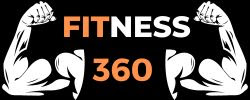Debunking 5 Muscle Building Myths: Get the Results You Want
Table of contents for the article:
I. Introduction
II. Myth #1: "Lifting heavy weights is the only way to build muscle"
III. Myth #2: "You need to eat a lot of protein to build muscle"
IV. Myth #3: "Cardio will make you lose muscle mass"
V. Myth #4: "You can spot reduce fat through exercise"
VI. Myth #5: "Supplements are necessary for muscle building"
VII. Conclusion
Each section will cover a common myth related to muscle building and provide helpful information and advice for readers looking to achieve their fitness goals.
If you're looking to build muscle, you may have come across a lot of conflicting information. With so much misinformation out there, it's important to separate fact from fiction. Falling for muscle building myths can lead to wasted time, frustration, and even injury. In this article, we'll debunk 5 of the most common muscle building myths to help you get the results you want.
Myth #1: "Lifting heavy weights is the only way to build muscle"
One of the most pervasive muscle building myths is that you have to lift heavy weights to build muscle. While heavy lifting can certainly be an effective way to stimulate muscle growth, it's not the only option. In fact, focusing exclusively on heavy lifting can lead to overtraining and burnout.
To build muscle, you need to challenge your muscles with resistance, whether that's through heavy weights, bodyweight exercises, or resistance bands. Varying your approach and incorporating different types of resistance can help you achieve better results and avoid injury. For example, incorporating bodyweight exercises like push-ups, pull-ups, and squats can be an effective way to build muscle without heavy weights.
Myth #2: "You need to eat a lot of protein to build muscle"
Protein is an essential nutrient for muscle building, but many people believe that you need to consume massive amounts of it to see results. In reality, the body can only use a certain amount of protein at once, so consuming excessive amounts won't necessarily lead to more muscle growth.
The recommended protein intake for muscle building is around 1 gram per pound of bodyweight per day. That means a 150-pound person would need 150 grams of protein per day. To meet your protein needs, focus on incorporating lean protein sources like chicken, fish, tofu, and beans into your diet.
It's also important to spread your protein intake throughout the day, rather than relying on one or two large meals. This can help ensure that your body has a steady supply of amino acids for muscle building.
Myth #3: "Cardio will make you lose muscle mass"
Many people believe that doing cardio will cause them to lose muscle mass, but this is a myth. In fact, incorporating cardio into your workout routine can have numerous benefits for muscle building, including improved endurance, better cardiovascular health, and increased calorie burn.
However, it's important to balance your cardio and weightlifting workouts to avoid overtraining or injury. A good rule of thumb is to aim for 2-3 days of cardio per week and 3-4 days of weightlifting. You can also try incorporating high-intensity interval training (HIIT), which combines short bursts of intense exercise with periods of rest. HIIT can help you build muscle while also improving your cardiovascular fitness.
Myth #4: "You can spot reduce fat through exercise"
Many people believe that doing certain exercises will help them lose fat in specific areas, such as their stomach or thighs. Unfortunately, this is a myth. When you exercise, your body burns fat from all over, not just one specific area.
To effectively reduce fat, you need to create a calorie deficit by burning more calories than you consume. This can be achieved through a combination of exercise and a healthy diet. Incorporating strength training exercises can also help you build muscle and increase your metabolism, which can help you burn more calories throughout the day.
Myth #5: "Supplements are necessary for muscle building"
While supplements can be a useful addition to a muscle building regimen, they're not necessary. In fact, many people rely too heavily on supplements and neglect other important aspects of muscle building, such as proper nutrition and exercise. Before taking any supplements, it's important to do your research and consult with a healthcare professional to ensure they're safe and effective for you.
VII. Conclusion
By debunking these 5 muscle building myths, we hope to help you achieve better results and avoid common pitfalls in your fitness journey. Remember, there's no one-size-fits-all approach to muscle building, and it's important to listen to your body and adjust your routine as needed. With dedication, consistency, and a willingness to learn, you can reach your muscle building goals and maintain a healthy, fit lifestyle.

